
After the public health emergency is over, there will likely remain incentive to keep some administration of specialty therapies at home, in a less acute setting of care, said Lance Grady, market access practice director, Avalere Health.

After the public health emergency is over, there will likely remain incentive to keep some administration of specialty therapies at home, in a less acute setting of care, said Lance Grady, market access practice director, Avalere Health.

Amanda Ely, CEO, introduces us to The Children's HIV Association (CHIVA) of the United Kingdom and Ireland and details how the experiences of young persons living with HIV differ from those who acquire the virus as adults.
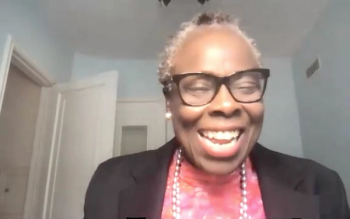
The WISDOM study—Women Informed to Screen Depending On Measures of risk—was launched to test a personalized approach to screening compared to annual mammograms. Funmi Olopade, MD, FACP, is a professor of Medicine and Human Genetics and founding director of the Center for Clinical Cancer Genetics and Global Health at the University of Chicago Medical Center, and a co-investigator of WISDOM. She discussed how the COVID-19 pandemic actually helped increase participation in the WISDOM study and what it means for future trials.

Horizon Blue Cross Blue Shield of New Jersey has been involved in a number of value-based cancer care initiatives that will be highlighted during an upcoming Asembia session, said Steven Peskin, MD, MBA, executive director, director of population health, Horizon Blue Cross Blue Shield of New Jersey.
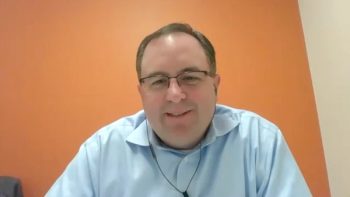
In 2 sessions at the Asembia 2021 Specialty Pharmacy Summit, George Van Antwerp, MBA, managing director, Deloitte Consulting, will provide a look at the future of specialty pharmacy and health equity in pharmacy.

The proposal to allow HHS to negotiate Medicare Part D drug prices is relatively realistic although the outcome will vary a lot drug by drug and class by class, said Melissa Andel, MPP, vice president of health policy at CommonHealth Solutions.

The benefit of real-world evidence is that it provides more data on subpopulations and diverse populations, said Christina Barrington, vice president of pharmacy programs at Priority Health.

Jason Myers, PhD, CEO of the New Zealand AIDS Foundation, delves into how services related to HIV and AIDS in New Zealand—treatment and prevention, and now holistic services—have been spurred to expansion in recent years.

Novel financial concepts will help to ensure sustainable access to gene and cell therapies, which may help reduce disparities, said Jane F. Barlow, MD, MPH, MBA, senior advisor, FoCUS Project, MIT Center for Biomedical Innovation, and executive vice president and chief clinical officer at Real Endpoints.

There are potential ways that precision medicine could exacerbate disparities, but it should be used to guide people to the right treatments, said Nick Page, chief clinical and strategy officer, and Patty Taddei-Allen, PharmD, MBA, BCACP, BCGP, vice president of clinical programs and services, WellDyne.

Evan L. Stepp, MD, FCCP, CPE, a pulmonologist at National Jewish Health, discusses an apparent change in attitudes among patients in the wake of 2019’s e-cigarette or vaping use–associated lung injury (EVALI) crisis.

The WISDOM study—Women Informed to Screen Depending On Measures of risk—was launched to test a personalized approach to screening compared to annual mammograms. Funmi Olopade, MD, FACP, is a professor of Medicine and Human Genetics and founding director of the Center for Clinical Cancer Genetics and Global Health at the University of Chicago Medical Center, and a co-investigator of WISDOM. She is an expert on understanding the etiology and genomic basis of cancer progression in diverse populations and has published extensively on both genetic and non-genetic risk factors for breast cancer. She discussed overcoming early challenges of low enrollment of Black women in the study.

Future asthma guidelines need to focus more on the unmet needs of the patients whose severe asthma is not well controlled, said Tonya Winders, MBA, CEO and president of the Allergy & Asthma Network.
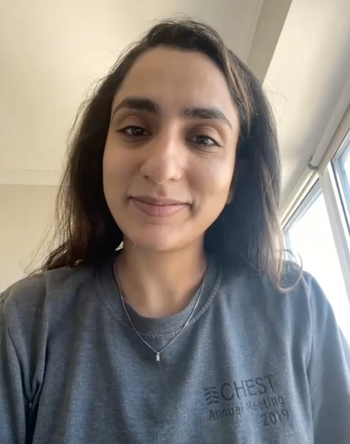
Paradoxical bronchospasm, although rare, should be recognized more often in spirometry tests, said pulmonologist Malvika Kaul, MD, who discussed study findings from a population of veterans with chronic obstructive pulmonary disease (COPD) and asthma, where the possibly life-threatening condition was not picked up in lung tests.
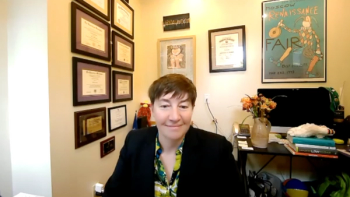
Multiple trastuzumab biosimilars were approved and launched very quickly in the United States, which sets up an interesting scenario in the market to see the nuance of having multiple options available, said Cate Lockhart, PhD, PharmD, MS, program, director, Biologics and Biosimilars Collective Intelligence Consortium (BBCIC).


Large health system pharmacies need to first identify their own contributions to health care disparities before identifying areas of opportunity to address the issue, said Aimee Loucks, PharmD, manager, specialty clinical pharmacy programs and formulary, Kaiser Permanente.
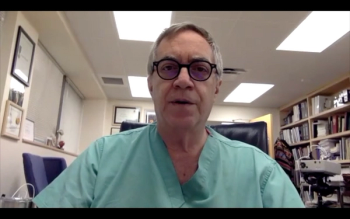
Camillo Ricordi, MD, FNAI, outlines what needs to happen next in the islet transplantation field.

There are several reasons as to why precision therapeutics have not taken off for chronic obstructive pulmonary disease (COPD) in the same way that they have for other diseases, said Don Sin, MD, FRCP, MPH, a professor of respiratory medicine at the University of British Columbia and head of the Centre of Heart Lung Innovation, St. Paul’s Hospital.

Evan L. Stepp, MD, FCCP, CPE, a pulmonologist at National Jewish Health, director of the Highlands Ranch Clinic, and an assistant professor, Department of Medicine, Division of Pulmonary, Critical Care and Sleep Medicine, discussed the recent FDA decision to authorize an e-cigarette intended to help current smokers quit combustible cigarettes.

Mariam Lewis, MD, FCCP, a pulmonologist at UF Health and the UF College of Medicine, discusses why women are more sensitive to the effects of tobacco.
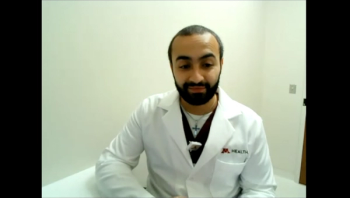
Kirollos Hanna, PharmD, manager of Oncology Pharmacy at the University of Minnesota Medical Center, explains the process behind how his practice chooses which biosimilars to stock and provide for patients.

Tackling disparities in diabetes management first requires collecting data and identifying affected groups before being able to take action, explained Brenden O'Hara, RPh, BCACP, from Blue Cross Blue Shield of North Carolina.
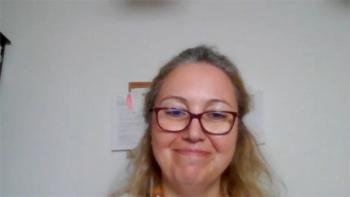
The American Journal of Managed Care® recently spoke with Nicoleta Dascalu, founding member and advocacy manager of Asociaţia Română Anti-SIDA (ARAS; Romanian Association Against AIDS) to learn more about ARAS, which was founded in April of 1992, just 3 years after the fall of communism in the country.

Camillo Ricordi, MD, FNAI, explains how the outdated FDA classification of islets as cellular transplants has hindered progress in this field for patients with type 1 diabetes.

Kirollos Hanna, PharmD, manager of Oncology Pharmacy at the University of Minnesota Medical Center, discusses the uptake of oncology biosimilars at his practice.

Leslie Eiland, MD, describes the importance of learning from the COVID-19 pandemic when it comes to ensuring continuous care for those with type 1 diabetes (T1D) during future pandemics.

Tonya Winders, MBA, CEO and president of the Allergy & Asthma Network, talks about the shift in focus that is needed to improve care for patients with asthma.

Psychographics is a way of categorizing someone based on their everyday behaviors using data that are collected every time they go to the store or post on social media, said Robert Groves, MD, executive vice president and chief medical officer at Banner | Aetna. In health care, psychographics can be used to positively influence someone to their benefit.
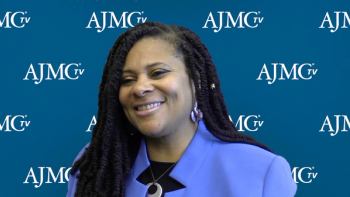
There is a lot of evidence on the disparities in cancer care, but less on how to take those findings and turn them into actionable items to address the problem, said Karen Winkfield, MD, PhD, executive director of the Meharry-Vanderbilt Alliance.

259 Prospect Plains Rd, Bldg H
Cranbury, NJ 08512
© 2025 MJH Life Sciences®
All rights reserved.
